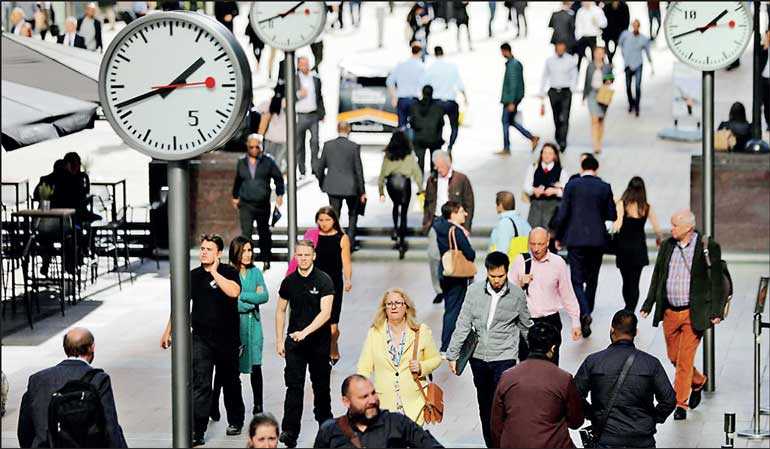Saturday Feb 21, 2026
Saturday Feb 21, 2026
Wednesday, 18 September 2019 00:00 - - {{hitsCtrl.values.hits}}

LONDON (Reuters): The British Chambers of Commerce cut its forecast for economic growth this year and 2020 on Monday, blaming a slower global economy, US-China trade tensions and the persistent drag from Brexit.
The BCC, whose members employ about one in five British workers, cut its economic growth forecast for this year to 1.2% from its June forecast of 1.3% and lowered the figure for 2020 to 0.8% from 1.0%.
The BCC’s new 2020 prediction is well below the average 1.1% forecast for next year in a Reuters poll of economists, and would represent the slowest growth since the 2008-09 recession. The group said its forecasts were based on the assumption that Britain avoids a damaging no-deal Brexit. “Our latest forecast shows a number of warning lights are flashing for the UK economy, even if we are able to avoid a messy and disorderly exit from the EU in just a few weeks’ time,” BCC director general Adam Marshall said.
Prime Minister Boris Johnson has promised to take Britain out of the EU on Oct. 31, without a transition deal if necessary, but parliament has ordered him to delay Brexit if he cannot negotiate a new deal with Brussels next month.
The world economy is also losing momentum, largely due to an ongoing trade conflict between the United States and China which has hit goods exporters such as Germany especially hard.
Britain’s economy contracted by 0.2% in the three months to June, largely due to a hangover from preparations for the original March 29 Brexit date, but the BCC forecast a small bounce back to 0.3% growth in the current quarter.
Brexit uncertainty was hitting business investment – which was heading for its longest period of full-year declines in 17 years – and gains in productivity, limiting future rises in living standards, BCC economist Suren Thiru said.
The BCC forecast wage growth would average just under 3% over the next couple of years – a slower pace than so far this year – while inflation was seen holding at just over 2%, with Bank of England interest rates not rising until 2021. Another employers group, the Institute of Directors, said a survey it conducted showed nearly 30% of member companies had or were considering setting up operations outside Britain because of Brexit.
Only 9% had or were considering setting up or moving operations back to Britain, the survey showed.
The survey also showed 51% of firms said a no-deal Brexit would be the worst outcome while 32% said further delay could have a worse impact.
“The idea of leaving the EU without a deal in place is certainly the bigger concern, but the prospect of repeated delays with no clear path forward is far from an appetising prospect,” Allie Renison, the IoD’s head of trade policy, said.
The IoD survey of 952 companies was conducted between July 1 and 17.